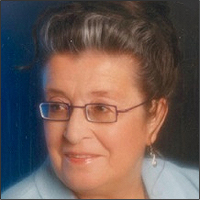Prof. June Boyce-Tillman
// Author, Composer & LecturerPROF. JUNE BOYCE-TILLMAN is an author, composer, lecturer, and Professor of Applied Music at the University of Winchester, England. Her book “Constructing Musical Healing: The Wounds That Heal” (2000) is available from Jessica Kingsley Publishers, “The Creative Spirit: Harmonious Living With Hildegard Of Bingen” (2001) is available from Canterbury Press and Morehouse Publishing, “A Rainbow To Heaven: Hymns, Songs, And Chants By June Boyce-Tillman” (2006) is available from Stainer & Bell Ltd, and “Unconventional Wisdom” (2007) is available from Equinox Publishing. June Boyce-Tillman is also Founder of The Hildegard Network, a Priest in the Anglican Church, contributor to numerous international anthologies, and she regularly runs workshops on music and spirituality.
Website: www.winchester.ac.uk
Photo: Mary-Lou White, Reprographic Centre, University of Winchester
Interview:
The Spirituality of the musical experience is a negotiated experience between the music and the musicker. It involves being transported into another space and time dimension which is different from the one in which ordinary life is lived, resembling the other world described by shamanic practitioners and called by Victor Turner a liminal space. This space which is linked with the way ritual space functions has potential for deep transformation. It can be reached by composing or improvising, performing or listening. It may involve some formal belief system, but also a formal belief system may prevent it happening, particularly if the music itself comes from a tradition that the musicker finds unacceptable. Any aspect of the music may support or hinder the experience. For example, the Materials used may be unacceptable or too unfamiliar to the musicker like one from a very different culture. The Expressive Character may be unacceptable like an association of the music with some unpleasant experience. The Construction of the music may be incomprehensible or the Value systems, like the hierarchies of western classical music, may be unacceptable. However, if the musicker is able to negotiate a relationship with music that is different from them, they will experience an intensity of expereince described by the theologian Martin Buber, based on post-modern theorists such as Levinas and Derrida, when we encounter the Other. In music we encounter many others:
• Expression – anOther self
• Values – anOther culture
• Construction – the world of abstract ideas
• Materials – the environment
“The Spirituality of the musical experience is a negotiated experience between the music and the musicker.”
– Prof. June Boyce-Tillman, author of “Constructing Musical Healing: The Wounds That Heal”


